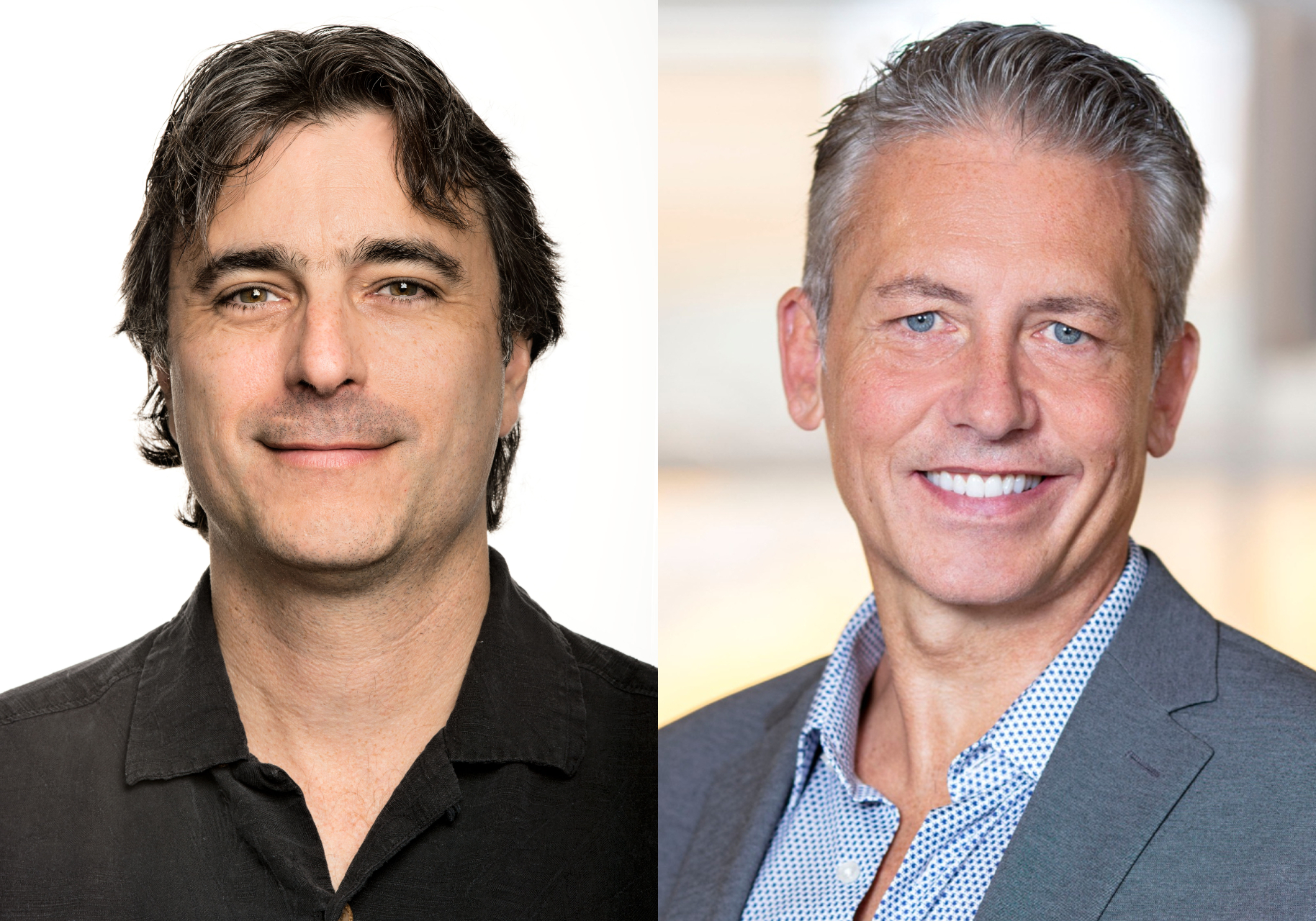Two Medicine & Dentistry Canada Research Chairs renewed
21 March 2024

Christian Beaulieu (left) and Jason Dyck.
Two researchers from the Faculty of Medicine & Dentistry have had their Canada Research Chairs renewed, the program recently announced.
Christian Beaulieu, a Tier 1 Chair in Magnetic Resonance Imaging of Brain Microstructure and Jason Dyck, a Tier 1 Chair in Molecular Medicine, each received another seven years of research funding.
The Canada Research Chairs Program invests about $311 million every year to attract and retain world-class researchers at Canadian post-secondary institutions. Tier 1 Chairs receive $200,000 annually for seven years and are renewable once.
“Drs. Christian Beaulieu and Jason Dyck exemplify excellence in research, innovation and in training our next generation of researchers,” says vice-dean of research Richard Lehner.
“They lead outstanding collaborative translational research programs as well as provide vital leadership in their research areas as directors of the Peter S. Allen MRI Research Centre and Cardiovascular Research Centre, respectively. Their research aligns well with the university and Faculty of Medicine & Dentistry strategic research plans, with a strong emphasis on precision health and imaging sciences, and integrates well with the research priorities of several of our institutes including the Neuroscience and Mental Health Institute (NMHI), Women and Children’s Health Research Institute (WCHRI) and the Cardiovascular Research Institute (CVRI). We are very proud of their research accomplishments and are looking forward to reading and hearing about their groundbreaking discoveries for the next seven years and beyond.”
Christian Beaulieu
Beaulieu is a professor in the Department of Radiology and Diagnostic Imaging, cross-appointed in the Department of Biomedical Engineering, and is the current scientific director of the Peter S. Allen MRI Research Centre.
His research focuses on developing and applying improved magnetic resonance imaging (MRI) methods to better detect brain injuries and diseases. His team hopes to improve our understanding of healthy brain development and our ability to diagnose and treat a wider range of brain disorders.
During the first term of Beaulieu’s Chair, his lab developed the next generation of MRI technologies that produce superior images of small important structures in the human brain. These can be used to infer and identify differences or abnormalities at the cellular level that would go undetected using conventional MRI.
These advanced MRI methods were then used to uncover new findings about brain development in healthy people over the lifespan and brain abnormalities in those with neurological disorders such as stroke, epilepsy, fetal alcohol spectrum disorders and multiple sclerosis.
“This CRC funding provides freedom and has enabled our group of trainees and staff to work with top-notch clinician scientists here at the Faculty of Medicine & Dentistry and to utilize our new MRI methods with patients over a vast range of clinical disorders, which has been incredibly insightful and rewarding,” says Beaulieu.
Jason Dyck
Dyck is a professor in the Department of Pediatrics and the director of the Cardiovascular Research Centre in the Faculty of Medicine & Dentistry.
His research focuses on understanding how changes in energy use at the molecular level contribute to disease — especially heart disease.
In many forms of heart disease, the heart’s ability to use energy efficiently is compromised, leading to poor function.
By uncovering a better understanding of changes in the heart’s use of energy, research will support the development of better treatments for cardiovascular disease and other diseases.
During the first term of Dyck’s Chair, his lab built on his pre-clinical research findings and began drug discovery and clinical studies. This led to his becoming an internationally recognized authority on the heart’s energy use and its effects on heart disease.
“The renewal of this Chair provides vital, long-term support for our lab’s translational research to continue and allows us to build on the foundation we’ve established here at the University of Alberta,” says Dyck.